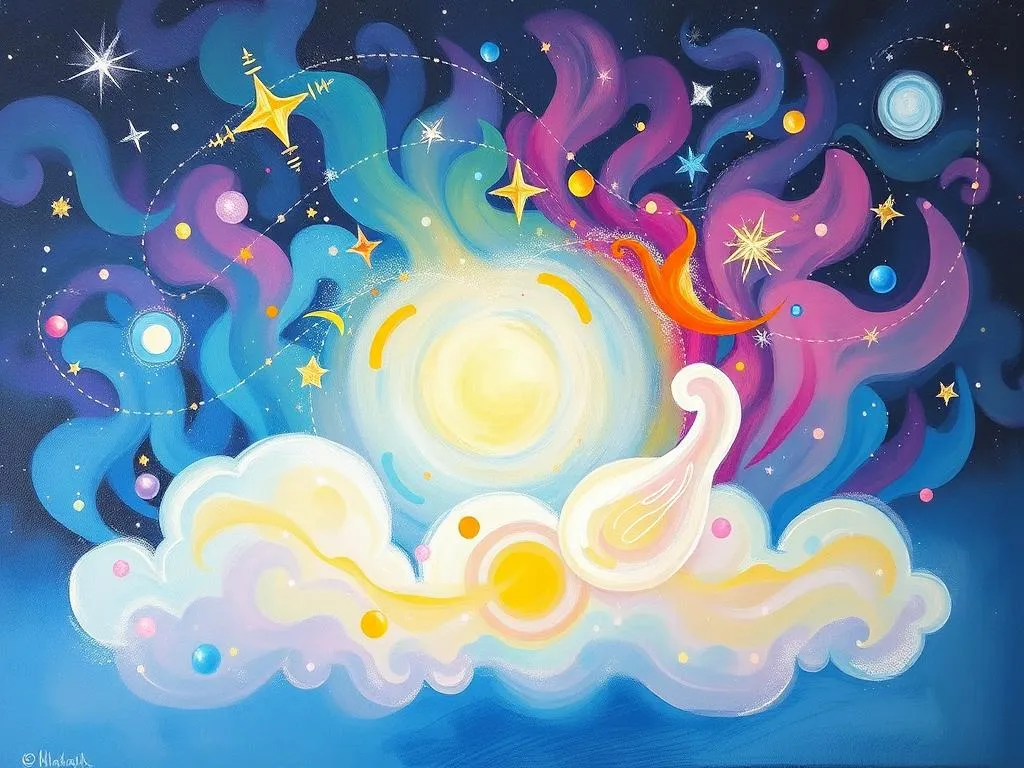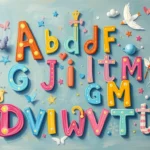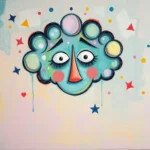
Dreams have long been a source of fascination and intrigue, inviting us to explore the depths of our subconscious. They serve as a bridge between our waking thoughts and the hidden corners of our minds, offering a unique perspective on our emotions, fears, and desires. Understanding dreams is not merely an esoteric pursuit; it can provide valuable insights into our lives, guiding us toward personal growth and self-awareness. In this article, we will delve into the symbolism and meanings behind dreams, examining how these enigmatic nocturnal visions can help us realize our inner truths.
Symbolism and Meaning
Every dream is laden with symbols, each carrying its own weight of meaning. The symbols that appear in our dreams can often be traced back to common themes that resonate with the human experience. For instance, water is a prevalent symbol, often representing emotions and the unconscious mind. A calm lake may signify tranquility and inner peace, while a turbulent sea might indicate emotional turmoil or unresolved conflict.
Another significant symbol is flight. Many people dream of soaring through the sky, experiencing a sense of freedom and liberation. This can suggest a desire to escape from the pressures of daily life or a yearning for personal growth. Conversely, dreaming of falling can evoke feelings of insecurity or a fear of failure, signaling a need to address underlying anxieties.
Animals also frequently populate our dreams, each species embodying different attributes. A lion might symbolize courage and strength, while a snake could represent transformation or hidden fears. Understanding the animal’s role in your dream can help illuminate aspects of your personality or emotional state that require attention.
Moreover, houses and buildings often appear in dreams, serving as metaphors for the self. Each room may represent different facets of your psyche. For example, a cluttered attic might indicate unresolved issues or memories, while a beautifully decorated living room could reflect a harmonious state of being.
Interpreting these symbols requires a nuanced approach, as personal experiences and cultural backgrounds can significantly influence meaning. It’s essential to reflect on your own feelings and associations with these symbols to uncover their unique significance in your life.
Key Scenarios and Variations
Dreams can manifest in countless ways, and the scenario can dramatically alter the interpretation. For instance, a dream about being chased often points to avoidance or fear of facing a particular issue in waking life. However, if the dreamer turns to confront the pursuer, it may indicate a newfound resilience and willingness to tackle challenges head-on.
Consider the scenario of losing something valuable in a dream. This could symbolize a fear of loss or insecurity regarding your self-worth. If you find the item again, it may suggest a reclaiming of lost confidence or a resolution to a problem that has been weighing heavily on your mind. Yet, if the loss remains unresolved, it could indicate ongoing emotional distress or anxiety about the future.
Another common scenario is dreaming of being unprepared for an exam or public speaking. This often reflects feelings of inadequacy or fear of judgment. However, if you find yourself performing exceptionally well despite the initial anxiety, it can signify your potential to overcome obstacles and succeed in your endeavors.
Nightmares also warrant discussion, as they provide profound insights into our fears and anxieties. A nightmare about being trapped may reveal feelings of helplessness in a situation, urging the dreamer to confront their limitations. Meanwhile, recurring nightmares can indicate unresolved trauma or persistent fears that demand attention.
The context of the dream is equally important. For example, a dream set in a childhood home may evoke nostalgia or unresolved issues from the past. In contrast, a futuristic setting could symbolize aspirations for growth or a desire for change. The emotional tone of the dream—whether it feels joyful, frightening, or confusing—also plays a crucial role in deciphering its message.
Real-Life Connections and Takeaways
As we reflect on the meanings behind our dreams, it’s essential to connect these insights to our waking lives. Understanding the messages contained in our dreams can be a powerful tool for self-reflection and personal growth.
One practical approach is to keep a dream journal. Recording your dreams immediately upon waking can help capture fleeting details that are often forgotten. Over time, patterns may emerge, allowing you to identify recurring themes or symbols that resonate with your life circumstances. This practice not only enhances your recall but also serves as a valuable resource for introspection.
When interpreting your dreams, consider your current life situation. Are there challenges you’re facing that align with the emotions or symbols in your dreams? For instance, if you frequently dream of being lost, it may reflect feelings of uncertainty or lack of direction in your life. This realization can prompt you to take actionable steps toward clarity and purpose.
Moreover, engaging in active imagination can facilitate a deeper understanding of your dreams. This technique, developed by psychologist Carl Jung, involves visualizing the dream scenario while awake and allowing the narrative to unfold. By interacting with the dream characters or environment, you can uncover hidden insights and emotions that may not be readily accessible in your waking state.
It’s also beneficial to discuss your dreams with trusted friends or family members. They may offer new perspectives or interpretations that you hadn’t considered. Sometimes, simply vocalizing your thoughts can bring clarity and understanding.
Additionally, consider the emotional responses evoked by your dreams. Do they inspire fear, joy, or confusion? Reflecting on these emotions can help you connect the dream to real-life situations and identify areas of your life that may require attention or change. For instance, if a dream about flying fills you with exhilaration, it could suggest a desire for greater freedom or autonomy in your life. Conversely, a feeling of dread in a nightmare may signal unresolved issues that need addressing.
Ultimately, the journey of dream exploration is deeply personal. Each dream holds the potential to unlock new layers of understanding about who you are and what you seek. By embracing the symbols and scenarios that populate your dreams, you can embark on a path of self-discovery and personal transformation.
In conclusion, the world of dreams is a rich tapestry of symbols and meanings, reflecting the complexities of our inner lives. By examining these elements and their connections to our waking experiences, we can gain valuable insights into our emotions, fears, and aspirations. Embrace your dreams as a source of wisdom, and allow them to guide you toward a deeper understanding of yourself. As you journey through your own dreamscapes, remember that the key to realizing your inner meaning lies within your willingness to explore and reflect on the messages they offer.







